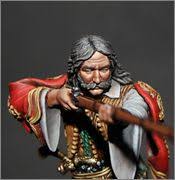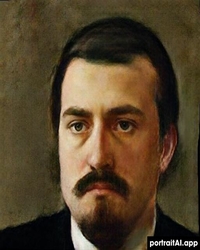0
















| Thumbs Up |
| Received: 3,325 Given: 2,975 |

Hello all,
I am new here and I wanted to start a thread that seems in line with many other discussions on this sub-board.
I was curious about Slavic toponyms in the Balkans. Before 450AD there is nothing, and it appears that a few hundred thousand (?) Slavs appeared over the Danube and changed many toponyms right down to the Peloponessos. Sometimes it seems like Slavs had a rather erratic pattern of settlement or renaming. For instance, we can record I believe 400 toponyms in Epirus, and about 180 are Slavonic. (According to Ethnic Composition of Medieval Epirus by Brendan Osswald) Yet apparently the Morea has around 500 toponyms of partial Slavic origin. (I think this figure comes from Max Vasmer's infamous Die Slaven in Griechenland.) Is Vasmer incorrect when it appears that Epirus, a much closer focal point for the Slavic source has less toponyms?
What is a good breakdown for Slavic names in the Balkans? It appears that Eastern Thrace and some parts of Greece are the main places that have avoided any Slavic toponymy, but can someone break down their opinions on relative percentage of pure Slavic names in Balkans? I heard before that 80-90% of all placenames in the Balkans are Slavic origin, but it seems a bit extreme. Even before renaming I don't think that more than 25% of Greece had Slavic names- but of course Greece was at the tail end of the migration.
Last edited by Scholarios; 01-10-2013 at 11:19 PM.


















| Thumbs Up |
| Received: 1,030 Given: 1,893 |

80%-90% range is probaly right for Ex-Yugoslavia and Bulgaria.
PS
Wellcome to forum.














| Thumbs Up |
| Received: 3,325 Given: 2,975 |

It appears no one is interested in this topic, but if you start talking about slavic toponyms in Germany, be prepared for nuclear meltdown it seems!
Thanks for the Reply twisted.
書堂개 삼 년에 풍월 읊는다













| Thumbs Up |
| Received: 390 Given: 272 |

What names in Greece do you find suspicious? We'll tell you if it is slavic. Some names may have been changed to Greek but perhaps some were left alone.
Description of Serbs by Londoners in 1896
http://books.google.com/books?id=9Ph...6%2C790&edge=0
http://www.theapricity.com/forum/sho...ditional-Music














| Thumbs Up |
| Received: 3,325 Given: 2,975 |

Thanks for responding Rashka.
Actually, I'm fairly certain that some of Max Vasmer's hypothesis about Slavic toponyms in his Die Slaven in Griechenland are exaggerated and have some origin other than Slavic.
Ignore the rubbish propaganda webpage it comes from, but Vasmer's list of Slavic Toponyms in Greece is extensive and found in the link below. However, I think he was also a propagandist himself, working as he did in the high-days of the Greek resistance against Nazi Germany.
http://www.promacedonia.org/en/mv/index.html (rubbish website, interesting source)
In particular, his desire to name every toponym with the suffix "itsa" at the end is problematic from a modern linguistic standpoint. This becomes especially absurd with names like "Ellenitsa" being listed as "Slavic" As is the decision to name obviously Greek toponyms such as "Skalvoi" (in Crete) or "Slavochori" (In Lakonia) as "Slavic" when they are clearly Greek words just to indicate possible presence of Slavs (thereby that the surrounding population was overwhelmingly Greek). In this way we can see that though his research is useful, it's blindness to a rational explanation of the toponymy could be seen as evidence of political agenda.
Can you read some Greek? If so, it lists all of Vasmer's toponyms in that link in Greek with German translation. I don't think his work has ever been translated to English.
I have read that about 25% of Greek place-names are non-Greek origin (Slavonic, Italian, Frankish, Turkish). Many were changed though after the revolution of 1821 a few were changed with the mass of changes happening in the 1920's.
I was curious about the rest of the Balkans. What percentage of Serb toponyms are pure Slavic as opposed to Illyro-Thracian, Greek, Turkish, Saxon, etc.
Last edited by Scholarios; 02-05-2013 at 01:43 AM.
書堂개 삼 년에 풍월 읊는다














| Thumbs Up |
| Received: 6,549 Given: 9,909 |

In Romania situation is as following:
- in Vallachia nearly all river names / village names that date back before 15th century are of Bulgarian origin.
- in Moldavia same is true only that it seems to have been an Old Russian-Old Bulgarian language contact area. In North and East, Russian placenames predominate. In South and West, Bulgarian placenames predominate. In Carpathian foothills, there is a very strong Hungarian influence, as well.
- in Transylvania, situation depends on sub-region:
In Banat region, which is the area bounded by Mures, Tisa, Danube and Carpathians, old placenames are split between Serbian and Hungarian. Serbian greatly predominates in highlands except in NE corner, at the sources of Bega river, where there is a pocket of old Romanian placenames. In lowlands, old placenames are a mix of Serbian and Hungarian. Of all regions today inhabited by Romanians, Banat is least Romanian as far as placenames are concerned.
In Crisana region, which is the area bounded by Mures, Tisa and Carpathians, in lowlands Hungarian placenames are greatly predominant, followed by Old Bulgarian transformed by Hungarian phonetic rules. In highlands, old placenames are a mix of Romanian/Bulgarian and Hungarian. Romanian placenames greatly predominate in pasture areas, whereas Hungarian placenames are almost as common as Romanian in river valleys.
In Maramures region, which is a natural area comprising upper Tisa basin enclosed by mountains on all sides, old Romanian placenames were greatly predominant except on the banks of Tisa river, which seemed to have been inhabited by Hungarians since placenames there are mostly Hungarian.
In Transylvania region situation is very complicated. In western highlands, Romanian/Bulgarian placenames greatly predominate, whereas in central lowlands Hungarian, German or Bulgarian transformed by Hungarian phonetic rules is greatly predominant. In eastern highlands, Romanian/Bulgarian placenames are predominant, except in Szekeler areas, where that is changed in favor of Hungarian.














| Thumbs Up |
| Received: 965 Given: 318 |

5 Stages of Grief:
Denial: The initial stage: "It can't be happening." Maniot is on top of me.
Anger: "Why ME? It's not fair?!" (either referring to God, oneself, or Maniot perceived, rightly or wrongly, as "responsible")
Bargaining: "Just let me stay to post another day Maniot, please."
Depression: "I'm so sad, why are you picking on me Maniot?"
Acceptance: "It's going to be OK." There is always Skadi.














| Thumbs Up |
| Received: 3,325 Given: 2,975 |

This is an interesting breakdown of toponyms in your country. Some of it makes sense historically, but then where to Latin-Vlach-Romanian toponyms dominate? (just in highlands?)
I find it fascinating that Romanian remained a spoken common tongue given the toponyms of the area. Did Bulgarians ever settle in these regions or just left over from First Bulgarian Empire administration?
書堂개 삼 년에 풍월 읊는다













| Thumbs Up |
| Received: 11 Given: 2 |

This is a really interesting topic, Scholarios. My paternal grandfather's village had a slavic name (Regkozena, it's in Lakonia), as did the nearby village (Agoriani). But trying to read too much into this from an ethnic point of view (as nationalists from both sides do) is like chasing shadows. The Slavic presence in Greece (i.e. "mass migration") has been greatly exaggerated by some scholars - and of course erased by Greek nationalists. I think according to Dienekes' analysis of Greek DNA, only 10%-20% of our DNA is of "recent Northern European origin" (Slavic and to a lesser extent Germanic). Toponyms aren't a great source as far as ethnic identity is concerned. For example, many places in Central and Eastern Europe have Celtic toponyms, but noone is seriously claiming that the people who live there are descendants of Celts.
















| Thumbs Up |
| Received: 7,437 Given: 5,645 |

In regards to the Slavic toponyms in northern Greece; most have been completely changed during the past 100 years since the Greek occupation of present day 'Greek' Macedonia. This has been made possible by the forced Hellenisation of the majority Slavic population at the time.
Here are some Slavic toponyms from northern Greece before the occupation and the Greek names they have been changed to.
Just some examples:
Darovo (gift)/Kehrokampos
Ludovo (crazy)/Kria Nera
Novi Grad (new city)/Ve Gora
Ostrovo (island)/Arnisa
Plus many others.
There are currently 1 users browsing this thread. (0 members and 1 guests)
Bookmarks